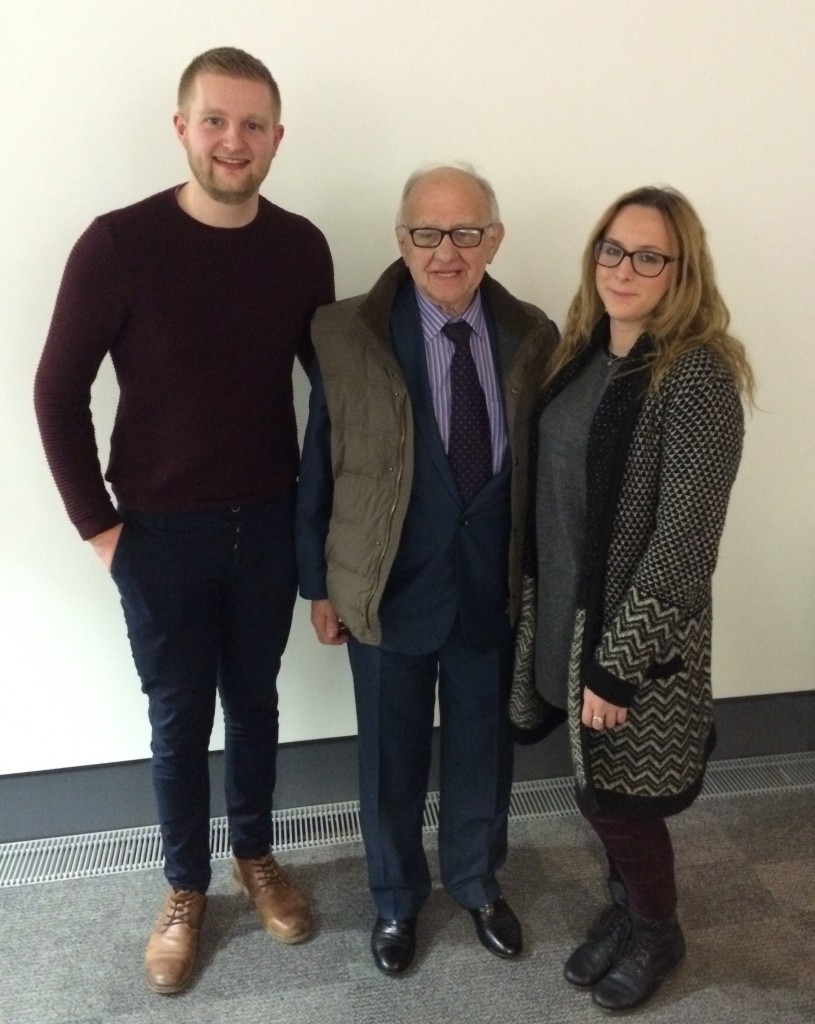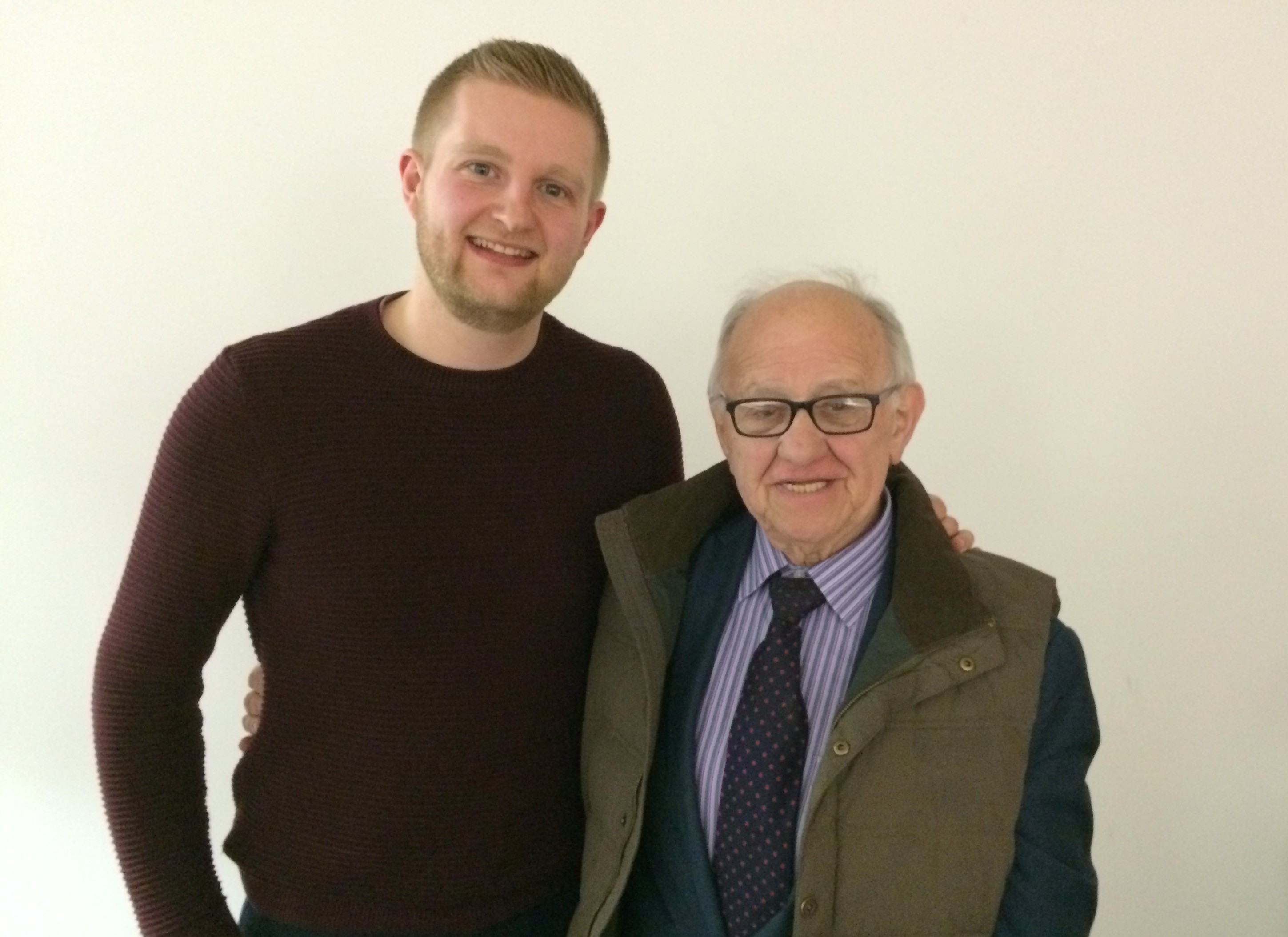Kingston students crammed together in an overcrowded lecture room to hear Holocaust survivor Zigi Shipper talk about escaping death in Auschwitz.
People were forced to sit on the floor, as every seat was taken, in order to listen to eighty-five-year-old Zigi’s story about growing up in the Jewish ghetto in Poland and being sent off to the Nazi concentration camps as a teenager.
Zigi, who was only 14 when he was sent to Auschwitz, said: “Many times I forget my PIN number for my credit card, but I will never forget 840303.”
Zigi’s story is one that every student in the room is familiar with and has heard before through the numerous films, books and documentaries that have been made about the Holocaust. The subject is also almost tirelessly taught at school.
However, hearing it from Zigi, someone who has experienced the Holocaust first hand, was truly remarkable, different and special.
When telling the audience of how he and thousands of other Jews were shipped off to Auschwitz in kettle trains from the miserable Lodz Ghetto, he said: “I feel so ashamed about it. How can a 14-year-old boy hope people should die so that he would have room to sit down? I certainly wasn’t a human being anymore. I hope nobody would have called me an animal because it would have been an insult to the animal.”
Zigi, who was surprisingly perky for a man of 85, gave a detailed description of how terrible is was being a kid in the ghetto where starvation and humiliation dehumanised the population and brought out the worst in them.
He said: “People also ask me how I can remember it at such an old age, and I tell them: how can I forget it?”
He was so calm throughout his talk, he was funny and charismatic and made the audience laugh several times.
First year international relations and journalism student Tyra Stave, 21, said she decided to come to the hear Zigi talk as the chance to actually meet someone who experienced the Holocaust is getting slimmer and slimmer by the year.
She said: “It was amazing how he made everybody laugh and told it his story in such an interesting way.”
One of Zigi’s many jokes were: “People often ask me whether my wife is a survivor too, and I must say, after being married to me for over 60 years, she is the survivor.”
The event was hosted and arranged by KU student Josh Whatsize, who is the youth ambassador for the Holocaust Memorial Day Trust, the KU History Society and the United Nations Association of Kingston University.

Whatsize said: “I first heard Zigi speak in 2010 and he was the first survivor I heard speak. His story is so moving and so powerful that five years later, I still do the work that I do.”
Zigi explained how the people he lived with in the concentration camp became his family. And although they got scattered around the world after the liberation and although there are fewer and fewer of them each year, they still keep in touch and they are still his family.
He however gave tribute to his grandmother, who raised him when his mother abandoned him as a child. His grandmother died on the day of the liberation of the Czech concentration camp she was placed in and did not even get one day of freedom.
He said: “I would have loved to have my arms around her one more time and say ‘grandma, thank you for bringing me up. Whatever I am, I owe to you.’”
The Holocaust survivor, who immigrated to the UK immediately after the War and has lived there ever since, gave the audience a pretty simple message at the end of his lecture:
“I ask you: why do we hate? We are all human beings, that’s all we are, what difference does it make if we go to a Church to pray, or a Synagogue or a temple?
“What will hatred do to you? It will ruin your life. My dear friends, don’t hate. And be nice to people.”
The applause was loud and long-lasting when he finished, and many people stayed behind to chat with him, ask him questions and take photographes with him.

